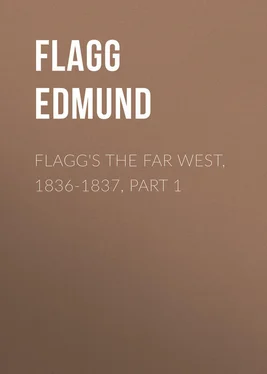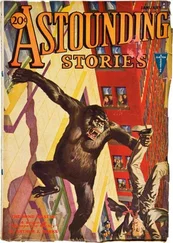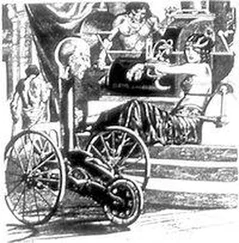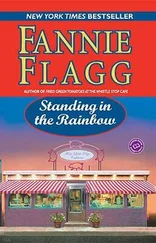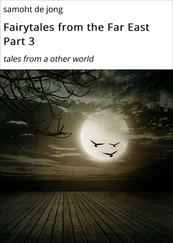Edmund Flagg - Flagg's The Far West, 1836-1837, part 1
Здесь есть возможность читать онлайн «Edmund Flagg - Flagg's The Far West, 1836-1837, part 1» — ознакомительный отрывок электронной книги совершенно бесплатно, а после прочтения отрывка купить полную версию. В некоторых случаях можно слушать аудио, скачать через торрент в формате fb2 и присутствует краткое содержание. Издательство: Иностранный паблик, Жанр: foreign_antique, foreign_prose, Путешествия и география, на английском языке. Описание произведения, (предисловие) а так же отзывы посетителей доступны на портале библиотеки ЛибКат.
- Название:Flagg's The Far West, 1836-1837, part 1
- Автор:
- Издательство:Иностранный паблик
- Жанр:
- Год:неизвестен
- ISBN:нет данных
- Рейтинг книги:4 / 5. Голосов: 1
-
Избранное:Добавить в избранное
- Отзывы:
-
Ваша оценка:
- 80
- 1
- 2
- 3
- 4
- 5
Flagg's The Far West, 1836-1837, part 1: краткое содержание, описание и аннотация
Предлагаем к чтению аннотацию, описание, краткое содержание или предисловие (зависит от того, что написал сам автор книги «Flagg's The Far West, 1836-1837, part 1»). Если вы не нашли необходимую информацию о книге — напишите в комментариях, мы постараемся отыскать её.
Flagg's The Far West, 1836-1837, part 1 — читать онлайн ознакомительный отрывок
Ниже представлен текст книги, разбитый по страницам. Система сохранения места последней прочитанной страницы, позволяет с удобством читать онлайн бесплатно книгу «Flagg's The Far West, 1836-1837, part 1», без необходимости каждый раз заново искать на чём Вы остановились. Поставьте закладку, и сможете в любой момент перейти на страницу, на которой закончили чтение.
Интервал:
Закладка:
Edmund Flagg
Flagg's The Far West, 1836-1837, part 1
PREFACE TO VOLUMES XXVI-XXVII
These two volumes are devoted to reprints of Edmund Flagg's The Far West (New York, 1838), and Father Pierre Jean de Smet's Letters and Sketches, with a Narrative of a Year's Residence among the Indian Tribes of the Rocky Mountains (Philadelphia, 1843). Flagg's two-volume work occupies all of our volume xxvi and the first part of volume xxvii, the remaining portion of the latter being given to De Smet's book.
Edmund Flagg was prominent among early American prose writers, and also ranked high among our minor poets. A descendant of the Thomas Flagg who came to Boston from England, in 1637, Edmund was born November 24, 1815, at Wescasset, Maine. Being graduated with distinction from Bowdoin College in 1835, in the same year he went with his mother and sister Lucy to Louisville, Kentucky. Here, in a private school, he taught the classics to a group of boys, and contributed articles to the Louisville Journal , a paper with which he was intermittently connected, either as editorial writer or correspondent, until 1861.
The summer and autumn of 1836 found Flagg travelling in Missouri and Illinois, and writing for the Journal the letters which were later revised and enlarged to form The Far West , herein reprinted. Tarrying at St. Louis in the autumn of 1836, our author began the study of law, and the following year was admitted to the bar; but in 1838 he returned to newspaper life, taking charge for a time of the St. Louis Commercial Bulletin . During the winter of 1838-39 he assisted George D. Prentice, founder of the Louisville Journal , in the work of editing the Louisville Literary News Letter . Finding, however, that newspaper work overtaxed his health, Flagg next accepted an invitation to enter the law office of Sergeant S. Prentiss at Vicksburg, Mississippi, where in addition to his legal duties he found time to edit the Vicksburg Whig . Having been wounded in a duel with James Hagan of the Sentinel in that city, Flagg returned to the less excitable North and undertook editorial duties upon the Gazette at Marietta, Ohio (1842-43), and later (1844-45) upon the St. Louis Evening Gazette . He also served as official reporter of the Missouri state constitutional convention the following year, and published a volume of its debates; subsequently (until 1849) acting as a court reporter in St. Louis.
The three succeeding years were spent abroad; first as secretary to Edward A. Hannegan, United States minister to Berlin, and later as consul at Venice. In February, 1852, he returned to America, and during the presidential campaign of that year edited a Democratic journal at St. Louis, known as the Daily Times . Later, as a reward for political service, he was made superintendent of statistics in the department of state, at Washington – a bureau having special charge of commercial relations. Here he was especially concerned with the compilation of reports on immigration and the cotton and tobacco trade, and published a Report on Commercial Relations of the United States with all Foreign Nations (4 vols., Washington, 1858). Through these reports, particularly the last named, Flagg's name became familiar to merchants in both the United States and Europe. From 1857 to 1860 he was Washington correspondent for several Western newspapers, and from 1861 to 1870 served as librarian of copyrights in the department of the interior. Having in 1862 married Kate Adeline, daughter of Sidney S. Gallaher, of Virginia, he moved to Highland View in that state (1870), and died there November 1, 1890.
In addition to his labors in the public service and as a newspaper man, Flagg found time for higher literary work, and won considerable distinction in that field. His first book, The Far West , although somewhat stilted in style, possesses considerable literary merit. Encouraged by the success of his initial endeavor, he wrote the following year (1839) the Duchess of Ferrara and Beatrice of Padua , two novels, each of which passed through at least two editions. The Howard Queen (1848) and Blanche of Artois (1850) were prize productions. De Molai (1888), says the New York Sun of the period, is "a powerful, dramatic tale which seems to catch the very spirit of the age of Philip of France. It is rare to find a story in which fact and invention are so evenly and adroitly balanced." Our author also wrote several dramas, which were staged in Louisville, Cincinnati, St. Louis, and New York; he also composed numerous poems for newspapers and magazines. His masterpiece, however, was a history dedicated to his lifelong friend and colleague, George D. Prentice, entitled The City of the Sea (2 vols., New York, 1853). This work was declared by the Knickerbocker to be "a carefully compiled, poetically-written digest of the history of the glorious old Venice – a passionate, thrilling, yet accurate and sympathetic account of the last struggle for independence." At the time of his death Flagg had in preparation a volume of reminiscences, developed from a diary kept during forty years, but this has never been published. 1 1 For a list of Flagg's prose and poetical writings, contributions to periodicals, and editorial works, see "Annual Report of the Librarian of Bowdoin College for the year ending June 1, 1891," in Bowdoin College Library Bulletin (Brunswick, Maine, 1895).
"In hope of renovating the energies of a shattered constitution," we are told, Flagg started in the early part of June, 1836, on a journey to what was then known as the Far West. Taking a steamboat at Louisville, he went to St. Louis by way of the Ohio and the Mississippi, and after a brief delay ascended the latter to the mouth of the Illinois, and thence on to Peoria. Prevented by low water from proceeding farther, he returned by the same route to St. Louis, whence after three weeks' stay, spent either in the sick chamber or in making short trips about the city and its environs, the traveller crossed the Mississippi and struck out on horseback across the Illinois prairies, visiting Edwardsville, Alton, Carlinsville, Hillsborough, Carlisle, Lebanon, Belleville, and the American Bottoms. In July, after recrossing the Mississippi, he visited in like manner St. Charles, Missouri, by way of Bellefontaine and Florissant; crossed the Mississippi near Portage des Sioux, and passed through the Illinois towns of Grafton, Carrollton, Manchester, Jacksonville, Springfield, across Grand Prairie to Shelbyville, Mount Vernon, Pinkneyville, and Chester, and returned to St. Louis by way of the old French settlements of Kaskaskia, Prairie du Rocher, and Cahokia.
During this journey Flagg wrote for the Louisville Journal , as already stated, a series of letters describing the country through which he travelled. Hastily thrown together from the pages of his note book, this correspondence appeared anonymously under the title, "Sketches of a Traveller." They were, however, soon attributed to Flagg, and two years later were collected by the author and published in two small volumes by Harper and Brothers (New York, 1838), as The Far West . These volumes are in many respects the best description of the Middle West that had appeared up to the time they were written. Roughly following the journals of Michaux, Harris, and Cuming by forty, thirty, and twenty years respectively, Flagg skillfully shows the remarkable growth and development of the Western country. His descriptions of the Ohio, Mississippi, and Illinois rivers are still among the best in print, particularly from the artistic standpoint. His account of the steamboat traffic is valuable for the history of navigation on the Western rivers, and shows vividly the obstacles which still confronted merchants of that time. Chapters xi, xii, and xiii, dealing with St. Louis and its immediate vicinity, are the most detailed in our series, while the descriptions of St. Charles and the Illinois towns through which Flagg passed, are excellent.
Читать дальшеИнтервал:
Закладка:
Похожие книги на «Flagg's The Far West, 1836-1837, part 1»
Представляем Вашему вниманию похожие книги на «Flagg's The Far West, 1836-1837, part 1» списком для выбора. Мы отобрали схожую по названию и смыслу литературу в надежде предоставить читателям больше вариантов отыскать новые, интересные, ещё непрочитанные произведения.
Обсуждение, отзывы о книге «Flagg's The Far West, 1836-1837, part 1» и просто собственные мнения читателей. Оставьте ваши комментарии, напишите, что Вы думаете о произведении, его смысле или главных героях. Укажите что конкретно понравилось, а что нет, и почему Вы так считаете.
